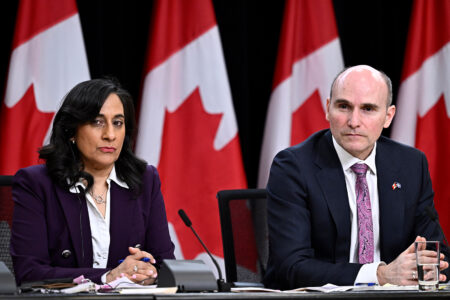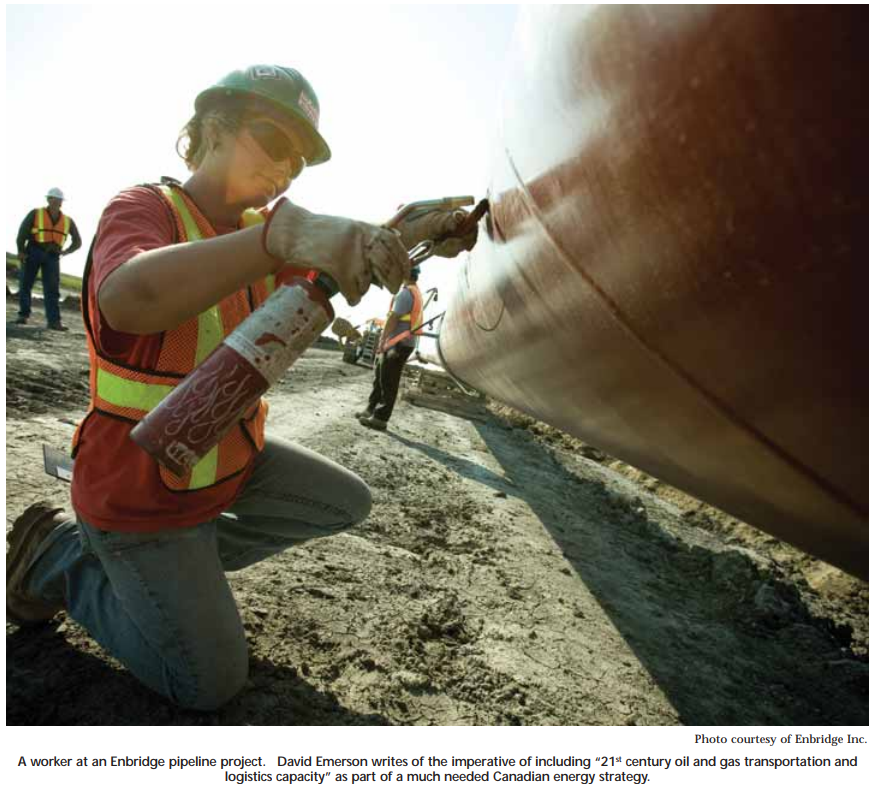
The global economy is being transformed as never before. Technology has liberated poor and developing economies, unleashing growth and opportunity, not just in China, India and Brazil, but across much of the developing world. The geopolitical order is in flux, and the once comfortable world of advanced industrial economies is becoming decidedly less comfortable, both economically and politically. This shifting of the world’s economic centre of gravity is likely to continue as far as we can reasonably see.
A few consequential crucibles have also emerged. It is increasingly clear, for example, that the earth’s environmental commons are reaching potentially destructive thresholds in terms of threats to the earth’s climate and ecosystems. We are also seeing that the uneven distribution of essential natural resources, most notably energy, has given well-endowed countries strategically powerful leverage in the international community. Making matters more complex, the environment and energy crucibles are deeply intertwined.
When it comes to energy, water and natural resources, Canada is one of the most advantaged countries in the world. Unfortunately, ever since the failure of the National Energy Program three decades ago, constructive policy debate on a pan-Canadian approach to energy has been a political no-go zone.
Yet Canada’s potential is impressive. We have in the oil sands the second-largest oil reserves in the world. Our natural gas reserves are third in the world. We are the world’s second-largest producer of uranium. We have the fourth largest production of hydroelectricity. And we have significant potential for small hydro, wind, geothermal, biofuels and solar power, all complemented by a growing and dynamic technology capacity across the energy spectrum. Overall, Canada’s energy supply position ranks as number five in the world.
Experience has shown, however, that natural resources can also be a curse. If not managed in a way that contributes to the long-term health and stability of the economy, natural resources can distort public finances and the broader economy, leaving it vulnerable to resource depletion and cyclical volatility.
Today, Canada still does not have a well-defined strategic framework for taking advantage of our energy potential, and we need one. Our energy and resource wealth has the potential to be a metaphorical turnpike to a whole new level of prosperity, stability and geopolitical leverage for the benefit of future generations.
And that is where the Energy Policy Institute of Canada (EPIC) comes in. We are a private sector organization with interests across the energy spectrum: green, carbon, producers, transporters, financiers and consumers. We have come together for a limited period (two to three years) solely to develop a private sector view as to what a Canadian energy strategy should look like. We believe good economics, good science, responsible resource stewardship and a commitment to social responsibility can be sensibly interwoven so as to maximize the benefits to Canada and Canadians from our energy assets.
Our aim is to assemble an approach and work with governments to encourage its adoption. We have no illusions that we have all the answers or have even asked all the questions, but we believe we do have a contribution to make.
We advocate not a top-down federal policy but, rather, a strategic framework that respects and aligns federal, provincial and territorial responsibilities and approaches. We also see a key role at the municipal level to influence and shape a large portion of energy consumption and conservation.
EPIC has produced a comprehensive report that is now part of the public domain. My goal here is to highlight a number of areas that are critical for Canada as we adapt to fundamental forces that are reshaping the global economy. Internationally, there will be winners and losers. It is all but certain that many of the winners in the 20th century will be losers in the 21st, and Canada must not be among the losers.
Success is seldom an accidental twist of fate. To position the country for competitive global leadership 10 to 30 years from now, we need a plan of action that lays the groundwork in the next five years.
There are a number of streams of transformation relating to energy that require immediate and substantive attention.
First, it is essential that Canada commit to a high standard of resource stewardship that includes high environmental performance standards across air, water, land and ecosystem protection. The standards should reflect a balanced approach that combines solid science and practical economic realities. They should be benchmarked, particularly within North America, and objectively verifiable. While the environmental debate has been focused on carbon dioxide (CO2) and climate change for at least a decade, it should be broadened to include the broader environmental footprint.
For both environmental and economic reasons, environmental policy and resource stewardship in Canada should be in collaboration, or at least in anticipation of collaboration across North America. Air, water and ecosystems transcend national boundaries, and the economics of energy and energy security ultimately demand North American solutions en route to global fixes.
It is increasingly clear, for example, that the earth’s environmental commons are reaching potentially destructive thresholds in terms of threats to the earth’s climate and ecosystems. We are also seeing that the uneven distribution of essential natural resources, most notably energy, has given well-endowed countries strategically powerful leverage in the international community.
Unfortunately, Canada is fighting a rearguard action to remedy reputational damage as a result of widespread perceptions that we are not dealing with CO2 and other environmental issues in a satisfactory way. In this era of planetary social and news media, that allows project reviews to be rigorous, timely and more certain in terms of timing and the fundamental considerations in play. There should be established protocols to enable a province or the federal government to take the lead without separate processes, information requests, analysis and criteria applied. The fundamental need is for a sensible mechanism to permit efficient regulation with clear intent, as opposed to a Gordian knot of regulation by constipation.
Second, regulation has become dizzyingly complex, time-consuming, costly, uncertain and opaque. It must become far more transparent and efficient, with a consolidated approach emerging threats that “America first” policies and protectionism could seriously impede or reverse progress in this area.
Third, energy-related infrastructure should be strategically planned and optimized to minimize transportation costs and environmental disruption in North America, while ensuring energy security for Canada, the US and Mexico. This should include transmission lines with “smart grid” capability as well as pipeline capacity. Balkanized and inefficient energy transportation systems can dramatically increase energy consumed in getting the product to the customer, which runs directly counter to improving our energy footprint on the environment, not to mention that it’s also bad economics. To a degree this is already happening with pipelines and electricity transmission, but it falls well short of the kind of collaboration gains that are possible. Moreover, there are real and reputation and brand are easily destroyed at a distance. And clever use of spin strategies not underpinned by real substance and real performance will almost certainly fail.
Here in Canada there is also significant potential for joint planning and development of infrastructure to achieve greater efficiency, lower cost and less environmental disruption. Pipelines, transmission lines and major projects could benefit from joint development arrangements among western provinces, for example.
Fourth, Canada needs to develop the capacity to serve energy markets beyond North America. The developing world needs access to energy to support its development aspirations. Added pipeline capacity to Canada’s west coast is critical if we are to add balance to our 99 percent reliance on the US as essentially our only energy export market. Such capacity will also be vital to realize competitive market value for the energy resources of western and northern Canada. The fact is, there is a real risk that US markets could become saturated or protected over time.
Here again, rigorous environmental standards must be in place, First Nations need to be partners, and all governments and stakeholders will have to coalesce around a strategy with world-leading fail-safe arrangements.
Canada has spent billions on the Asia Pacific Gateway and Corridors Initiative, but failure to include 21st-century oil and gas transportation and logistics capacity is a glaring gap that will seriously constrain the economy over time.
The recent House of Commons vote against tanker traffic off Canada’s west coast should be seen as a cynical, short-term, myopic political tactic that, if it succeeds, would bring long-term harm to Canada. It ranks alongside the parliamentary resolution directing the government not to offer any compromise to our supply management cartel in international trade negotiations, a hypocritical line in the sand that merely serves to embarrass and marginalize Canada in areas that are vital to our economic future.
Fifth, fundamental improvement in energy consumption and environmental performance means new processes, new technologies, new building designs, better community plans and improved energy literacy across the board. Huge sums of money — investment capital and capital equipment that embodies new and better technologies and approaches — will be required. That means working with capital replacement cycles over 15 to 30 years to encourage the capital investment that can actually deliver major environmental, efficiency and productivity improvements. The same applies to housing, buildings and community plans. Reshaping them around greater energy efficiency and environmental performance takes decades.
Canada’s potential is impressive. We have in the oil sands the second-largest oil reserves in the world. Our natural gas reserves are third in the world. We are the world’s second- largest producer of uranium. We have the fourth-largest production of hydroelectricity. And we have significant potential for small hydro, wind, geothermal, biofuels and solar power, all complemented by a growing and dynamic technology capacity across the energy spectrum.
Fiscal incentives and regulatory imperatives must therefore be carefully structured and calibrated to encourage the necessary conversion of the countries’ capital stock. Longterm stability and predictability of fiscal and regulatory measures will be essential, and it will require real alignment of measures at the federal, provincial, territorial and municipal level. A little like herding cats, but getting it right will pay enormous dividends in terms of a strong, competitive economy with a sound environmental foundation.
Sixth, massive capital investments will be required in the decades ahead to realize Canada’s energy potential. Foreign investment will be a vital source of finance as well helping to open markets, build partnerships, support research and acquire and develop technology. Government urgently needs to ensure that state-to-state Foreign Investment Promotion and Protection Agreements are in place. The objective should be to encourage foreign investment in Canadian energy and resources, and to provide equivalent protection and support for Canadian companies investing abroad as they build globally competitive businesses with roots here in Canada.
In today’s global economy direct investment is a fundamental expression of trust, confidence and enduring partnership. Failure to grasp this essential aspect of global competitiveness will cost Canada dearly, and it will cost well beyond energy and natural resources. It will cost in terms of other important aspects of Canada’s commercial and diplomatic relationships.
Considering the economic and fiscal contribution of energy to Canadians, one would think the need for an energy strategy to be self-evident. In both 2008 and 2009, investments in Canada’s oil and gas sector alone accounted for between 25 and 30 percent of nonresidential capital investment, and well over $30 billion per year in government revenue. Over the next 25 years over $1 trillion of investment is anticipated, accounting for well over $300 billion in government revenue.
It is also true that, regardless of how vigorous the push for green energy is, the world’s dependence on carbon fuels will continue for decades to come.
While it would be quite easy to destroy or badly damage our own energy industry through bad policy or neglect, the world would go on, consuming carbon fuels from other countries, mostly nondemocratic, some hostile to Canada and our values. Canadians would be left to mitigate the damage to the economy, the devastating fiscal fallout, the crushing diminution of social programs and fiscal transfers such as equalization, health and post-secondary education.
The truth is, we need our energy business to succeed. We depend on it deeply and fundamentally.
The real debate should build on recognition that Canada has energy assets that are the envy of most of the world. Canadians need to focus on a sensible approach to energy that minimizes environmental impacts while nurturing and expanding the value realized by Canadians. Wise development of our resources opens up massive opportunities to increase value added, support research and development, apply technology and diversify our economy for the benefit of future generations.
Importantly, it also enables Canada, as a stable, democratic, nonimperial nation, to take on a greater leadership role in other parts of the world. This is a time when statist and authoritarian alternatives are on the rise and leadership from countries like Canada is greatly in demand.
Photo: Shutterstock








